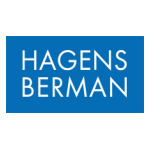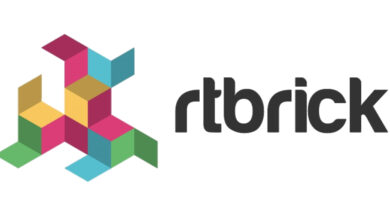Hagens Berman: Federal Judge Upholds NCAA College Athletes’ Claims for Name, Image and Likeness Compensation

U.S. District Court allows antitrust class-action claims against the NCAA to continue in week of wins for college athletes
OAKLAND, Calif.–(BUSINESS WIRE)–#antitrust–U.S. District Judge Claudia Wilken today upheld antitrust claims on behalf of NCAA college athletes regarding name, image and likeness (NIL) compensation, according to attorneys at Hagens Berman representing the proposed class.
In Judge Wilken’s order, all of the claims brought in Hagens Berman’s case House v. NCAA were upheld amid the NCAA’s motions to dismiss in a sweeping victory for plaintiffs.
“We are pleased that the court has allowed our case to continue, especially during a week of monumental wins for NCAA college athletes,” said Steve Berman, managing partner of Hagens Berman and attorney for the proposed class. “We look forward to continuing this case and also offering our guidance and suggestions to Congress as it considers legislation concerning this same issue.”
“We believe that the federal court’s ruling today echoes the Justices’ opinions in this week’s Supreme Court decision that ‘the NCAA is not above the law,’” Berman added. “The NCAA has a virtual monopoly in the relevant labor market that produced anticompetitive effects. We believe that the judicial system has been loud and clear this week: the NCAA needs to get with the times.”
The lawsuit, originally filed June 15, 2020, in the U.S. District Court for the Northern District of California, accuses the NCAA and conferences of illegally limiting the compensation that Division I college athletes may receive for the use of their NILs and athletic reputations. The complaint says the entities violated federal antitrust laws in abiding by a particular subset of NCAA rules that prohibit college athletes from receiving anything of value in exchange for the commercial use of their NIL.
The federal court win comes on the heels of another major victory for NCAA college athletes from the U.S. Supreme Court on June 21, 2021, in which the court upheld an injunction that will prohibit the NCAA from enforcing any rules that fix or limit compensation provided to college athletes by schools or conferences in consideration for their athletic services other than cash compensation untethered to education-related expenses.
Details from the Opinion
In the June 24, 2021 order, Judge Wilken stated that the lawsuit’s claims stand up against the NCAA’s arguments for dismissal by plausibly alleging injury and anticompetitive effects of the NCAA’s regulations.
As the order lays out, the NCAA has argued that if college athletes were allowed to profit from their NILs, consumer demand for college sports would be threatened. However, as plaintiffs have successfully argued in return, the NCAA has granted more than 200 waivers since 2015 permitting student-athletes to use or profit from their NILs, and demand for college sports has not decreased as a result. In addition, recent surveys suggest that consumer demand for college sports would not decrease if student-athletes were permitted to profit from their NILs. The NCAA has even recently changed its official policy on NIL compensation by supporting proposals that would permit student-athletes to receive NIL compensation to some degree.
The NCAA also argued that plaintiffs could not prove they had suffered antitrust injury, but to establish that, defendants needed to show that the class of college athletes’ injuries are not of the type that the antitrust laws were intended to prevent. The NCAA failed to make that showing.
Wilken also wrote that to establish injury in fact “a plaintiff need not establish that it has a legal entitlement to the compensation in question.” Rather, a “plaintiff can show that it was injured in fact by alleging that it was deprived of the opportunity to receive compensation it otherwise would have received but for the challenged conduct.”
The college athletes’ lawsuit alleges that, absent the challenged NCAA restrictions, “Division I conferences and schools would compete amongst each other by allowing their athletes to… share in the conferences’ and schools’ commercial benefits received from exploiting student-athletes names, images, and likenesses,” which include broadcasting revenue.
“These allegations are sufficient to raise the reasonable inference that competition among schools and conferences would increase in the absence of the challenged rules, and that this increased competition would incentivize schools and conferences to share their broadcasting and other commercial revenue with student athletes even if the student-athletes lacked publicity rights in broadcasts,” the order reads. “These allegations are sufficient to claim injury in fact at this juncture.”
The lawsuit seeks to hold the NCAA accountable to college athletes via injunction and damages for the NCAA’s antitrust violations regulating the profits gained from the use of college athletes’ names, images and likenesses, specifically:
- An injunction voiding rules prohibiting compensation to college athletes for use of their name, image and likeness.
- Damages based on payments college athletes would have received if not for the NCAA’s restraints. These revenues include social media earnings and revenues from group licenses.
Find out more about the class-action lawsuit against the NCAA and its member conferences.
Hagens Berman Sobol Shapiro LLP has represented classes of college students before, initiating and leading the historic Alston case where we won a 9-0 win for college athletes, achieving a $208 million settlement against the NCAA concerning antitrust-related student scholarship limits, a combined $60 million settlement against Electronic Arts and the NCAA regarding player likeness rights in videogames, and an additional settlement valued at $75 million regarding concussions and safety protocols and a trial victory overturning NCAA rules limiting education based compensation. The firm’s sports litigation legal team also includes former NCAA athletes.
Hagens Berman has 10 offices worldwide. The firm’s tenacious drive for plaintiffs’ rights has earned it numerous national accolades, awards and titles of “Most Feared Plaintiff’s Firm,” MVPs and Trailblazers of class-action law. More about the law firm and its successes can be found at www.hbsslaw.com. Follow the firm for updates and news at @ClassActionLaw.
Contacts
Ashley Klann
[email protected]
206-268-9363




